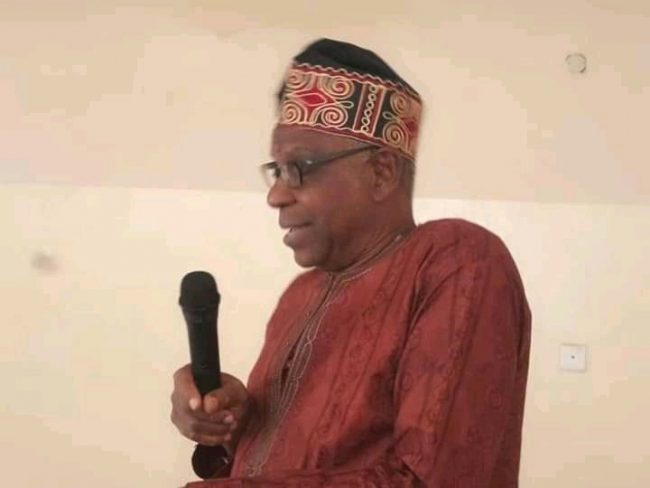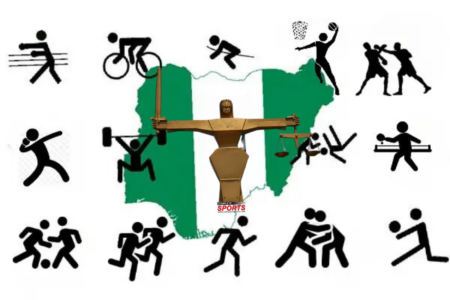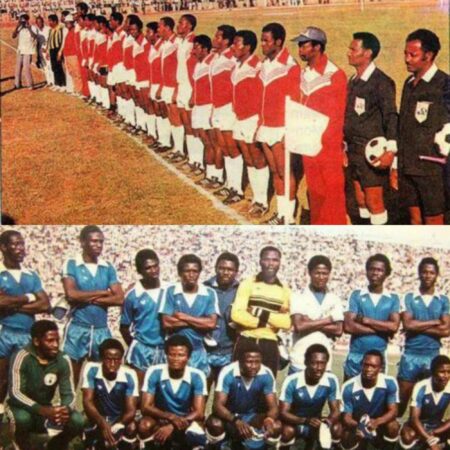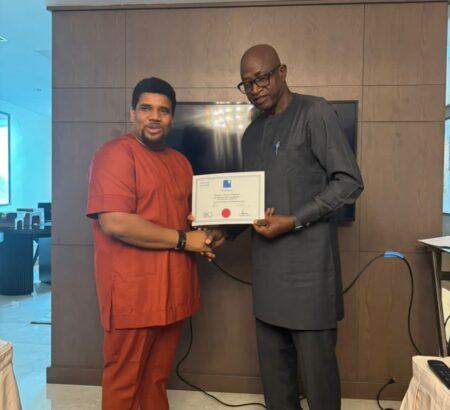For very many reasons I do not like to write about the National Institute for Sports, NIS.
Its story is a pathetic reminder of how Nigeria has lost its way in the development of Sports.
The mere thought of what Nigeria could have achieved had the trajectory of the original visionaries of the national institute been sustained since it was established as an arm of the National Sports Commission in 1974 for the training of elite athletes, short–term professional courses for coaches and administrators, and as the best research centre for sports in the country, dampens the spirit.
Every time I think of the NIS I am reminded of Onyeka Onwenu’s 1984 BBC award-winning television documentary titled ‘The Squandering of Riches’. The National Institute for Sports is a national treasure being squandered on the altar of a leadership of Nigerian sports that is not often appointed on the basis of experience in the field, good qualifications, and passion, but on purely political considerations that often do not favour sports.
Very easily the damage done to the NIS, a ‘carbon copy’ of the German Institute of Sports, GIS, in Hennef at inception, where several Nigerian coaches and sports administration were trained in the days before the NIS was established, is primarily the result of the high turnover of the political appointees without a solid sports background, from the late 1980s, that continues to this day. Sports Ministers were often reluctant appointees from other disciplines. So, they never quite have the deep knowledge of the intricacies of the sector. That has been a big limiter of sports development, even as Mr. Sunday Dare, the current Minister of Sports, is determined to prove that assumption wrong and make a difference. Time shall tell.
Also Read: Ideye: I Will Expose Corruption In Nigerian Football Soon
It is for that reason that the National Institute for Sports has been one of the least funded parastatals in the entire government, because no one see and appreciates its relevance, or role within the polity.
When Dr. Amos Adamu came from academia and soon headed the sports development department of the ministry in the early part of the 1990s, he brought with him plenty of theoretical postulations, but little of their actual practice. So, he created his own version of sport development anew. He eventually, and unfortunately, he became the most powerful administrator in Nigerian sports, without being well grounded in the original philosophy and mission of the institution.
That’s what afflicted the NIS and started its decline down the rung of relevance in Nigerian sports development. Unfortunately, also, those that should have guided Adamu into that the NIS objectives were sacked or retired, and when responsibility fell upon him he was not adequately prepared with any deep understanding of the future envisaged by Isaac Akioye, Jerry Ekpeazu, Awoture Elayae, and all those first-generation sports administrators that laid the foundation stone of the NIS project. Adamu came in from a different planet.
He started to influence the appointment of the headship of the national institute with his anointed persons with a strong leaning from academia, not technocrats on the practical side of sports as was originally envisioned.
That’s when the derailment, the decline and decay started in the National Institute for Sports, with attendant effect on national sports development.
It is no surprise, therefore, that no Minister, since Anthony Ikhazoboh left office, has fully grasped the essence and place of the NIS within Nigeria’s sports development frame work, and attempted to put it right back on track. They all largely neglected it in ignorance of its place in the development architecture.
Today, the NIS is less than a shadow of itself. There is nothing of the original pieces of that institution left, apart from the dilapidated facilities and infrastructure. Nothing!
That was the situation I met in the institution in 2000 when I was made Chairman of the Governing Council. I was shocked to find that the management of the NIS had been trying desperately for years before that to get the National Technical Education Board, to accredit the Institute as a tertiary institution for the purpose of awarding National Diplomas like the OND, and HND. As noble as that objective may look on the surface it is a fundamental deviation from what the Institute was set up to produce.
Any football player that could read or write qualified to enroll for a coaching course to enhance his knowledge and hone his coaching skills. That’s why several national coaches only had certificates from a few days’ or weeks’ of coaching courses in all manner of institutions abroad. Even clinics served as much needed qualifications to embark on a coaching career without hindrance.
The NIS was conceived to bring an end to the traffic of retired athletes to Hennef, where Alabi Aissien, Christian Chukwu, and a whole host of other coaches had their coaching courses that gave them the necessary qualification to coach any of the national teams.
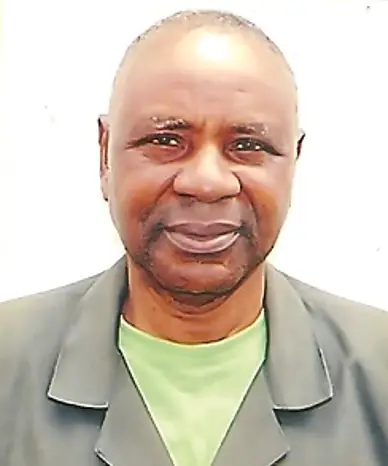
‘Diamond Toe’ Baby Anieke, a member of the 1949 UK Tourists team, embarked on a coaching career with a few weeks course at the same NIS. That’s why he could coach the Junior national team when Isaac Akioye, his team mate in the squad, plucked him from his drinking addiction and led him into coaching the Junior national team in the late 1970s.
I served sports as Chairman Governing Council of the NIS for 3 years (2000 to 2003).
When I arrived at the NIS, the place had lost focus and was agitating for academic accreditation.
My conviction was that there were only 2 ways to convince government that the NIS was heading in the wrong direction – bring back The German Institute of Sports that designed the original institution to remind government about its purpose; or introduce a new product or program that was working well elsewhere, and use it to convince government to tow that route. I chose the latter.
I shared my thoughts with the Director of the NIS at the time, Professor Lasun Emiola.
Together we embarked, in three years, on the most ambitious sports development project ever undertaken since the National Sports Festival was introduced in 1973.
With the Support of MTN who were introduced to the NIS by Mr. Dan Ngerem, the President of the Athletics Federation of Nigeria at the time, a passionate and consummate professional in sports administration, we invited officials from the Australian Institute of Sports, a global model sports development institute with excellent programmes at the time in Australia, to partner with the NIS, sign a relationship agreement, and undertake the design of a programme for all-round development of Nigerian elite athletes.
It worked like a clock. Even President Obasanjo, president of Nigeria at the time, witnessed the agreement signing ceremony between the two institutes in the board room of the Australian Institute of Sports in Australia during his visit there. Within two years the job was completed and Nigeria had a brand new 10-year Elite Athletes Development Plan leading to the 2016 Olympic Games. The project eventually collapsed like a pack of cards shortly after President Obasanjo left government.
The man that drove those reforms and initiatives, a programme that would have transported Nigerians sports far into the 21st Century, was Professor Lasun Emiola. He took it from me and ran with it till he succeeded. That’s the nature of the man – a true hardworker.
Last week Professor Lasun Emiola died at the Bayero University Kano. He served for 2 terms as Director of the NIS, from 1999 to 2007. After completing his tenure at the NIS he went to the University of Ilorin, and later to Bayero University Kano as a lecturer in the department of physical and health education.
As I write this, he has been buried in accordance to Muslim rites.
It is rather unfortunate that his huge contributions have not been acknowledged at all. Indeed, I have not seen a single major public announcement of his death, or a tribute to a man who was on the verge of writing one of the greatest chapters in the history of the NIS and the story of sports development in Nigeria.
Let this be my humble tribute, therefore, to Professor Lasun Emiola on behalf of the entire sports fraternity, a man of nobility, a great visionary, a dedicated sports administrator, a first-class scholar and a great family man. The story of the NIS shall never be complete without a chapter on his contributions.
My condolences go to his family, as I wish him a peaceful journey back to his Creator.


